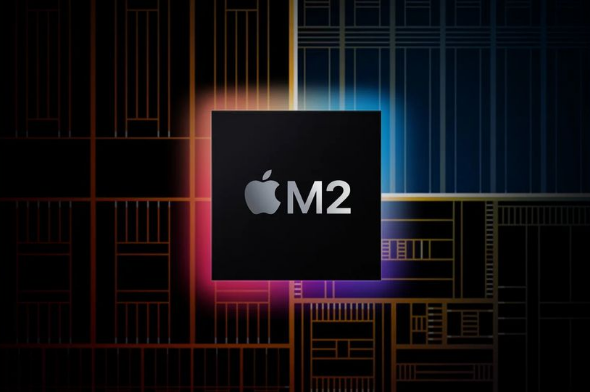Connection to DriversCloud Create a DriversCloud.com account Reset your DriversCloud.com password Account migration
First results of the Apple M2 Max CPU slightly disappointing
While there is a lot of talk about AMD's Ryzen or Intel's Core, it's easy to forget that Apple has its own chips, of which the M2 Max is the latest development.
Two years ago, Apple caused a sensation by brilliantly completing its project to develop its own processors. The objective of the American firm was above all to emancipate itself from the "tutelage" of Intel. Apple was indeed very dependent on the releases of the microprocessor giant and could not, in fact, innovate as it wanted. Developing its own processors meant a complete overhaul of its hardware and software architecture, but the release of the Apple M1 in November 2020 clearly proved him right. With the M1, not only did Apple manage to offer performance in line with users' expectations, but above all it did so while considerably reducing energy consumption, offering one of the best performance/power consumption ratios on the market.
Logically, Apple decided to continue its momentum and the development of the M2 chip has recently been completed. As with the M1, the idea was not to offer a single chip, but rather a range composed of several developments. The "basic" M2 is already available and while we are waiting for news about the M2 Pro or M2 Ultra, it is the M2 Max - a chip that should be between the two previously mentioned - that is leaked. Indeed, first results on the Geekbench tool were found in the software database. This kind of leaks is not rare and we should not expect Apple to confirm these results. Without being able to verify the source of these figures, it is better to keep a certain distance, to avoid any hasty conclusion. Nevertheless, these first results allow us to consider the behavior of the M2 Max.
In all likelihood, Apple should not announce machines designed around the M2 Max - and probably the M2 Ultra - before the end of the first quarter of 2023. It will then be time to verify these first measurements. Measurements that show an increase in performance that is a little disappointing in that it does not follow the increase in the number of cores. Indeed, the M2 Max should be composed of 12 cores (8 efficient cores and 4 effective cores) against 10 cores for the M1 Max, an increase of 20% in the number of cores. However, the performance measured on Geekbench only shows an increase of about 6-7% in single-threaded mode and about 15% in multi-threaded mode. The gains are not in line with those obtained when switching from the "basic" M1 to the "basic" M2: there, we could count on +10% in single-thread and even +15% in multithread while the number of cores was identical. If these results are true, it remains to be seen to what extent the optimizations still to be made by Apple will improve things.






